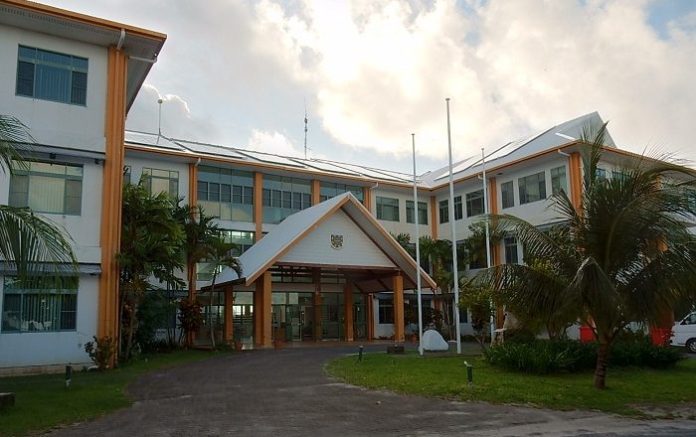An election result in Tuvalu has been delayed by two weeks as dangerous weather stops boats from bringing new lawmakers to the capital to vote for prime minister, highlighting why climate change is the top political issue in the Pacific Islands nation.
Tuvalu’s prime minister, Kausea Natano, lost his seat in a general election on 26 January closely watched by Taiwan, China, the United States and Australia, amid a geopolitical tussle for influence in the South Pacific.
Tuvalu is one of three remaining Pacific allies of Taiwan, and one contender for prime minister has said the new government should review whether Taiwan or China can best respond to Tuvalu’s development needs.
A vote of 16 newly elected lawmakers will decide who the prime minister. But dangerous weather conditions, including forecasts of 4 metre (13 ft) waves, has stopped boats from reaching the capital, Funafuti.
“Four elect-MPs are still stuck on the outer-islands. The proposed date to elect the PM is not possible now,” election commissioner Tufoua Panapa said on Tuesday.
Boats have been unable to come alongside the wharf in Funafuti’s small port, which is exposed to western winds, Funafuti Port acting director Taasi Pitoi said by telephone.
High tides in Funafuti have compounded the problem.
“It is flooding some places where there has never been flooding before,” he said, attributing this to rising sea levels.
Tuvalu’s meteorological service warned Funafuti residents to stay indoors as a 3.2-metre tide inundated the island. Photographs on social media show water lapping at the front doors of elevated homes, and waves crashing onto roads.
“We’re fatigued of telling our story over and over again,” Maina Talia, a climate activist elected to represent the atoll of Vaitupu, wrote on Facebook.
Scientists predict Funafuti risks being inundated by tides by 2050, and Tuvalu has struck a deal with Australia to allow its population to gradually migrate, but it is also seeking urgent action to fortify its coast.
Talia arrived by boat in Funafuti on Sunday night. Commenting on images of residents wading through water, he wrote the intensity and frequency of sea water seeping through the road to houses had left residents of Vaitupu with “very limited options”
“To address this issue we need an aggressive and serious approach,” he wrote on Facebook.
It is cyclone season in the Pacific Islands region. Philip Malsale, a climatologist with the Secretariat of the Pacific Regional Environment Programme, said climate change was increasing the frequency and intensity of Tuvalu’s coastal inundation and rough seas over the past fortnight..
SOURCE: STRAITS TIMES/PACNEWS














